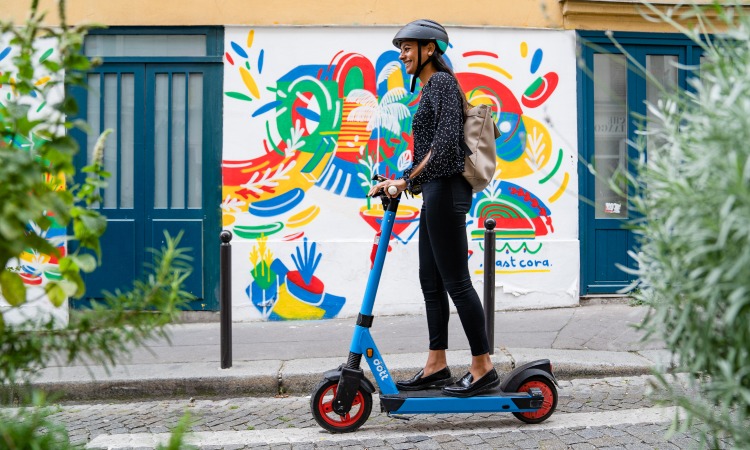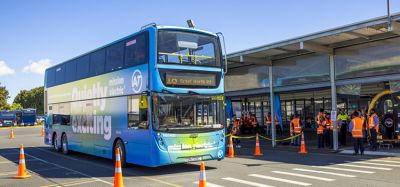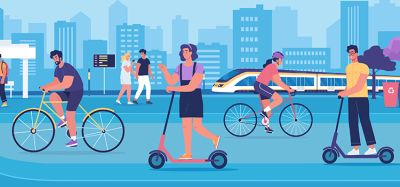Dott releases first gender gap report in micro-mobility usage
- Like
- Digg
- Del
- Tumblr
- VKontakte
- Buffer
- Love This
- Odnoklassniki
- Meneame
- Blogger
- Amazon
- Yahoo Mail
- Gmail
- AOL
- Newsvine
- HackerNews
- Evernote
- MySpace
- Mail.ru
- Viadeo
- Line
- Comments
- Yummly
- SMS
- Viber
- Telegram
- Subscribe
- Skype
- Facebook Messenger
- Kakao
- LiveJournal
- Yammer
- Edgar
- Fintel
- Mix
- Instapaper
- Copy Link
Posted: 19 July 2022 | Intelligent Transport | No comments yet
With the research highlighting the gender disparity in shared micro-mobility usage, Dott is working on initiatives to make its e-scooters more accessible for all, including the creation of women only training sessions.


Credit: Dott
European micro-mobility operator Dott has announced that it has released its first e-scooter gender gap report. The research explores the reasons for an imbalance of men and women using shared micro-mobility services and provides recommendations for targeted initiatives to help close the gender gap.
Dott’s own research reveals that men make up the majority of new riders (over 70 per cent) across its markets, with the gap narrowing in more established markets such as France and Belgium. The research indicates that more mature markets have a better perception of safety, and women are less likely to indicate that e-scooters are a service for men. As the service becomes more rooted in daily travel, the visibility of women using e-scooters is increased.
In addition, the report shows that one fifth of female e-scooter users felt that the vehicles provided a safer alternative than walking or using public transport at night, highlighting the need for reliable shared services 24/7.
Road safety was also cited among the highest reasons preventing women from not using e-scooter services, with 39 per cent choosing this reason. The concerns include perception of safety such as feeling unsteady. A lack of cycling infrastructure is the main factor for fear of using micro-mobility.
Concern around road safety was a greater concern in the UK (35 per cent) and Italy (51 per cent) than in France (20 per cent). The difference could be attributed to maturity in the market, with e-scooters being more widely adopted in France. It could also relate to the level of infrastructure, such as segregated cycle lanes and car-free zones or lower speed limits for cars in each country. For example in Paris, cars are limited to 30kph, bringing them closer to the speed for e-scooter services.
Laura Hensel, Head of Sustainability at Dott, said: “This research shows there is gender disparity in the users of shared micro-mobility. As we work towards a service which is accessible to everyone, we want to make it easier for more women to choose shared e-scooters and e-bikes to get around their city in a sustainable, effortless and efficient way. We hope that our new training sessions will help build confidence in a controlled environment, helping more people take advantage of our vehicles out on the road.”
Dott will be running a series of free e-scooter training sessions, with one per month reserved to be women only. The classes run for one hour on Fridays and Saturdays and aim to provide a safe, comfortable environment for women to trial e-scooters, helping to overcome the perception of safety fears and build confidence for independent use on the roads. Following the first sessions in London Dott will look to introduce the initiative across more markets.
If you liked this, you may also be interested in:
▶ Voi launches Gender Equity Commission to close e-scooter rider equity gap
Related topics
Accessibility, Air Quality, Mobility Services, On-Demand Transport, Passenger Experience, Sustainable Urban Transport, Vehicle & Passenger Safety
Related modes
Bikes & Scooters
Related cities
London
Related countries
Belgium, France, United Kingdom
Related organisations
Dott
Related people
Laura Hensel








